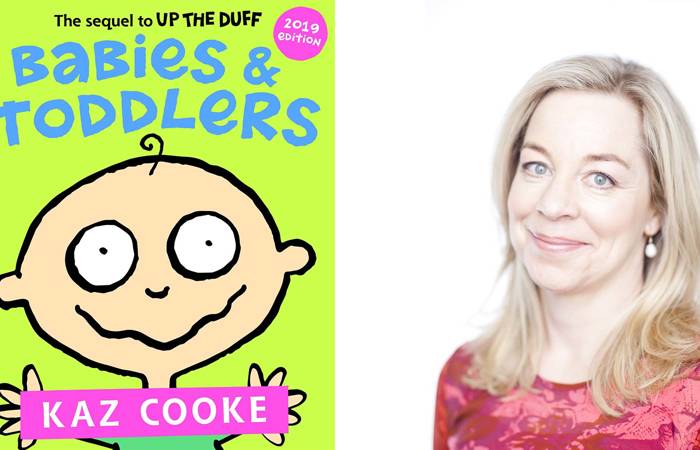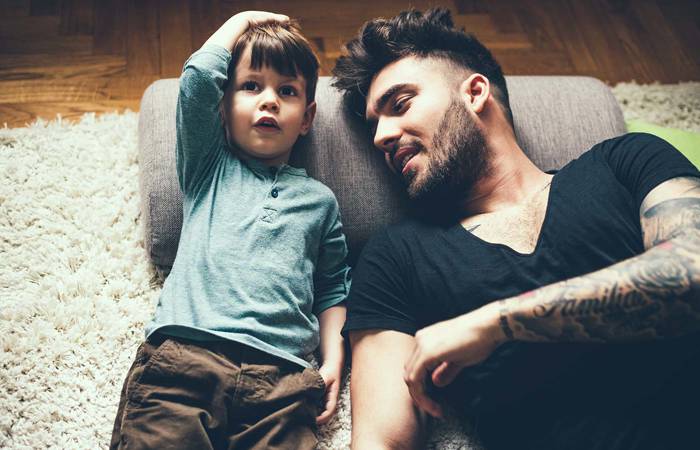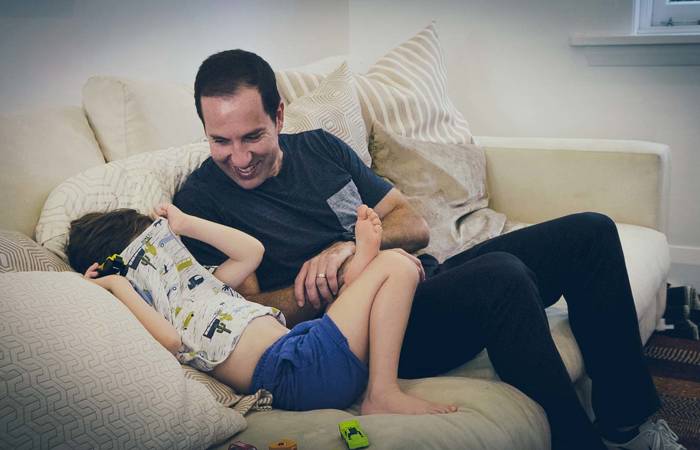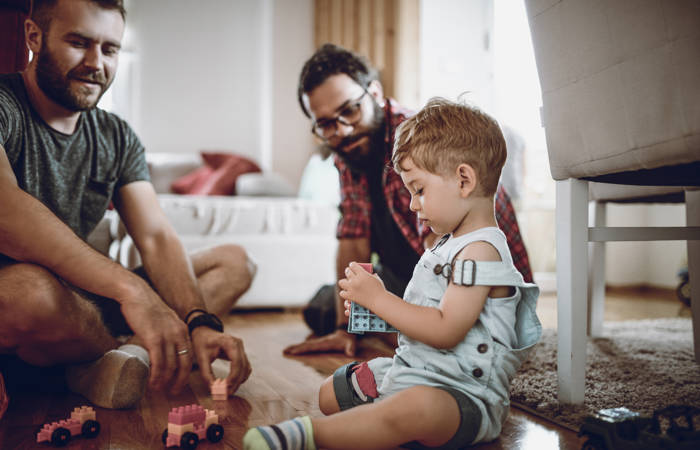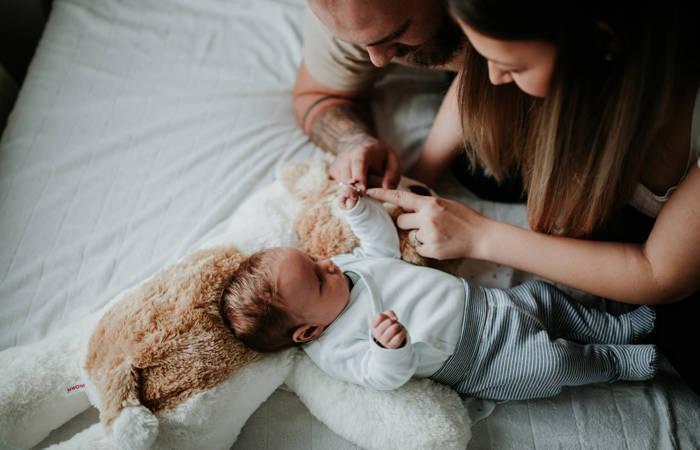Like what you see?
Sign up to receive more free parenting advice.
Thank you for subscribing to our newsletter!
Lifestyle
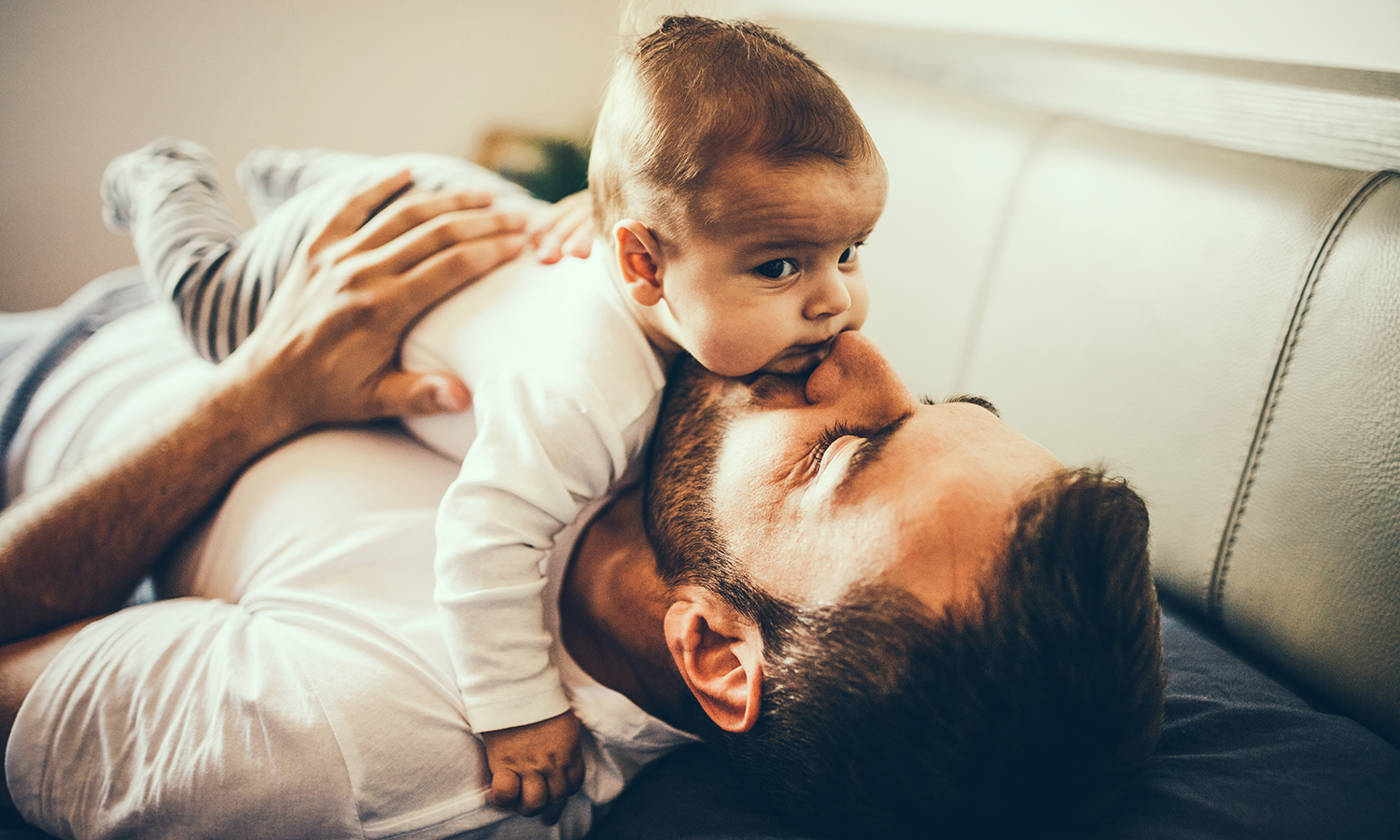
Credit: iStock.com/Anchiy
From the moment a couple finds out they’re having a baby, the focus is on the mother and the unborn infant.
Sometimes fathers are left out, regardless of how they much they want to be involved.
Dr Anthony Venning from the College of Medicine and Public Health at Flinders University reviewed 40 years of research on how men experienced being a new dad and the support they received.
What it means to be a father has changed over time and the type of support systems in place for new fathers has increased in line with technology, however Dr Venning says that men aren’t always getting the support they need.
“The authors of the reviewed studies referred to a teachable moment for fathers, which is not fully utilised yet,” he says.
“The potential is there because you have fathers who absolutely think that this new role of being a new parent is the best experience of their life, but a scary and at times unsettling rollercoaster at the same time.
“If the right support is available to build and sustain that initial fantastic feeling, it can only have benefits for the partner and the child’s mental health and wellbeing down the track.”
While there is more focus on a mother’s emotional wellbeing after the birth of a child, research has shown that 10 per cent of fathers experience prenatal and postpartum depression.
“If you aren’t ready for it and you don’t have the support network around you, the change in role of becoming a new dad can hit you like a brick wall,” says Dr Venning.
“If you don’t have that supportive environment, you can succumb to that downward spiral of distress that is hard to pull out of.”
In a 2011 study, researchers found that, “depression in fathers during the first year of a child’s life can have a detrimental impact on their child’s behaviour, and social and emotional development at the point of school entry, in addition to and uniquely compared with depression in mothers”.
This is supported by a 2008 study which found that, “depression in fathers in the postnatal period is associated with later psychiatric disorders in their children, independently of maternal postnatal depression”.
Even more reason to support new fathers.
They indicated they felt they were, at times, left out of the supports that were available. The quote from one father that really sticks with me is that he felt like ‘less than a shadow in the room’.Dr Anthony Venning
Stay up to date with the latest news and articles from First Five Years
Thank you for subscribing to our newsletter!
The challenges of being a new dad
Dr Venning explains that when the newborn baby comes along, fathers, like mothers, find their change in position within the family unit challenging.
“Fathers might have gone from being perceived as the equal most important in the relationship, to being lower down the list in relative importance, something fathers indicated they were alright with, but found hard to make that adjustment, nonetheless.
“Like all new parents, fathers in the research indicated they experienced exhaustion from caring for a new infant.”
However, they reported experiencing something most mothers don’t.
“They indicated they felt they were, at times, left out of the supports that were available,” he says.
“The quote from one father that really sticks with me is that he felt like ‘less than a shadow in the room’.
This particular father indicated that while he was very happy to be involved with the caring for his new child, he felt left out of the conversations that were had by the health professionals and then left out by the subsequent supports that were available.
“Another example is a father who said he was eager to find out as much as he could about caring for a child, not only to care for that child but also support his partner in her role.
“But he found that in a breastfeeding session the dads were told by the health professional to go to the pub and come back later.
“Another dad indicated that whenever there was information presented in written form, there was usually a little box either at the top or the bottom of the page that had really simplified language for the dads, implying they couldn’t understand or weren’t interested in the information being presented.”
Dr Venning explains that these examples of fathers being left out of the parent support systems added to the father’s frustration, as well as, the distance they felt from their child, regardless of how much they wanted to be close to their child and be part of the family unit.
What type of support are dads asking for?
“By reviewing all of the research, there are supports out there for new fathers, but it is not tailored enough nor highlighted enough,” says Dr Venning.
Fathers are asking for support with five elements.
Firstly, they need the support to be credible and practical from people they can trust like health professionals and/or fathers who have been through similar experiences before, Dr Venning says.
Secondly, the support needs to be specific.
How to help the mother with breastfeeding, how to hold a child, how to bathe a child, how to deal with temper tantrums, are some examples Dr Venning gives.
Thirdly, the support needs to be accessible.
“If things are going pear-shaped at 11pm at night, they want to be able to access support,” he says.
Fourthly, the support needs to be ongoing and age appropriate, not just for the first three to six months but throughout the child’s life and to meet the new challenges that present themselves as the child grows.
Finally, Dr Venning says, “one of the things the fathers said they like the most about support is the interaction, the connection with others, to be able to ask specific questions rather than just read information”.
“That type of support which engages and connects fathers is the type of support that is needed.”
Fathers aren’t picky about whether that support is in person or online, explains Dr Venning, fathers just like the ability to connect.
As for mothers, while this was not part of the current research, Dr Venning explains that similar to their own needs they can support fathers by, “keeping communication channels open, making sure fathers keep connected with things that they enjoy doing, and looking out for signs that dads are struggling”.
Support for Dads:
Dad’s Group Inc (DGI) is a not-for-profit community organisation committed to connecting new Dads, thereby improving men’s health, preventing family violence and reducing isolation and suicide.
The DILF (Dads I’d Like to Friend) Club is a group of Dads with young kids connecting both online and at regular hangouts.
MensLine Australia has professional counsellors available 24 hours a day, seven days a week, providing confidential and anonymous information and support for all father and parenting issues.
Playgroup is an informal session where mums, dads, grandparents, caregivers, children and babies meet up in a relaxed and friendly environment. There are options to look for specific groups, particularly dad playgroup meetings.
Your local child and family health nurse will be aware of local playgroups.


